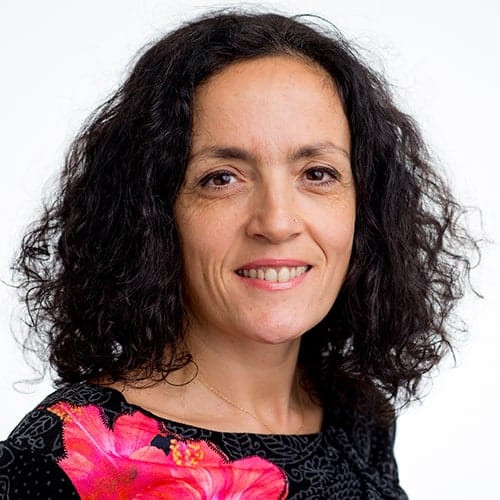NEW IDEAS IN COMPLEXITY SCIENCE
On May 24th, 2018, the First External Faculty Meeting of the Hub started with a public conference.
In short talks complexity scientists from all around globe shared their visions on the question “Complexity: Where do we go from here?”
What are the open, the most pressing, the most promising questions to an understanding of complexity and Big Data?
Find the talks of all conference participants (in order of appearance) on our Youtube channel in the playlist of the conference.
An overview with photographs of the event and links to all available slides can be found here.
TIZIANA DIMATTEO
“PREDICTING THE FUTURE OF COMPLEXITY SCIENCE IS VERY DIFFICULT”
Tiziana de Matteo is a professor of econophysics in the Department of Mathematics at King’s College London, UK, researching econophysics, complex networks and data science. Her talk explains why it is better to “stay where we are” in complexity science, rather than attempt to predict the future, and looks at complexity science from the perspective of a physicist and economist.
Complexity is unique in that it operates at the intersection of many different disciplines, but predicting its future direction is extremely difficult.
“As there is no unique and single definition of complex systems, in my opinion, there is not a single, unique, or more recommendable direction that should be pushed forward in our field,” says Tiziana.
Complexity scientists should instead pursue ongoing studies and leverage their own expertise, tackling real-world challenges where a real impact can be envisaged, with interdisciplinary teams.
Complexity science is essential as it has developed knowledge that is proven to be relevant. One area where it is vital is in the economics and finance sectors. Tiziana, a physicist by training, says that in recent years, the world of physics has lost many minds to this area, but they share the same basic characteristics. Economics and finance, both complex systems, are rich in data, and physicists are trained to handle such data.
New approaches are needed in economics and finance, Tiziana says, for example models for forecasting. In physics, the physical reality doesn’t change, but economics is governed by human behaviour, so it will change. Understanding this should pave the way for better predictions.
Tiziana concludes that complexity science should become an “investment science,” with more time, energy and money devoted to making the research field more disruptive.
CLICK FOR TIZIANA’S SLIDES.
See the video in full lenght here:

